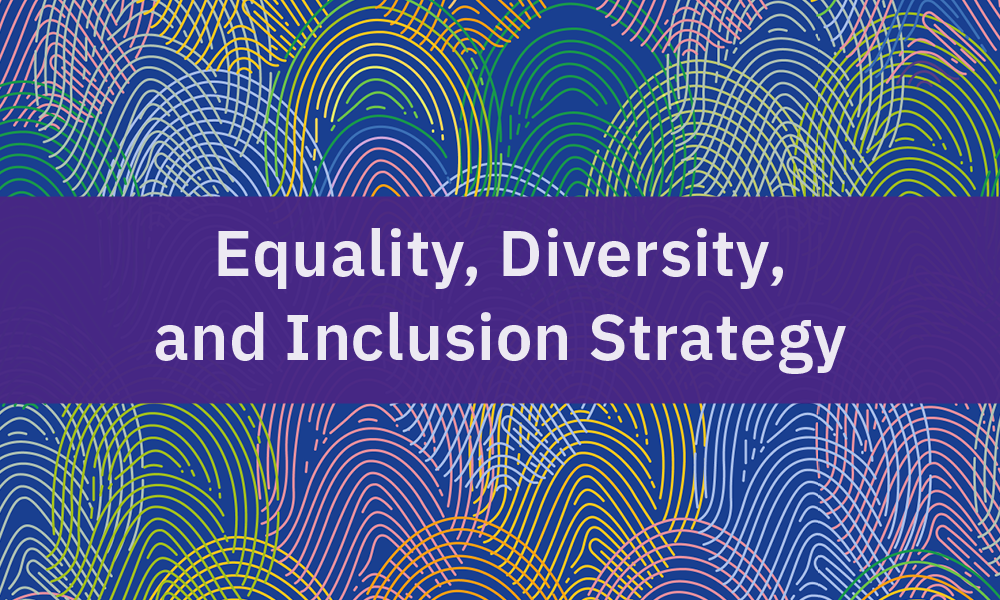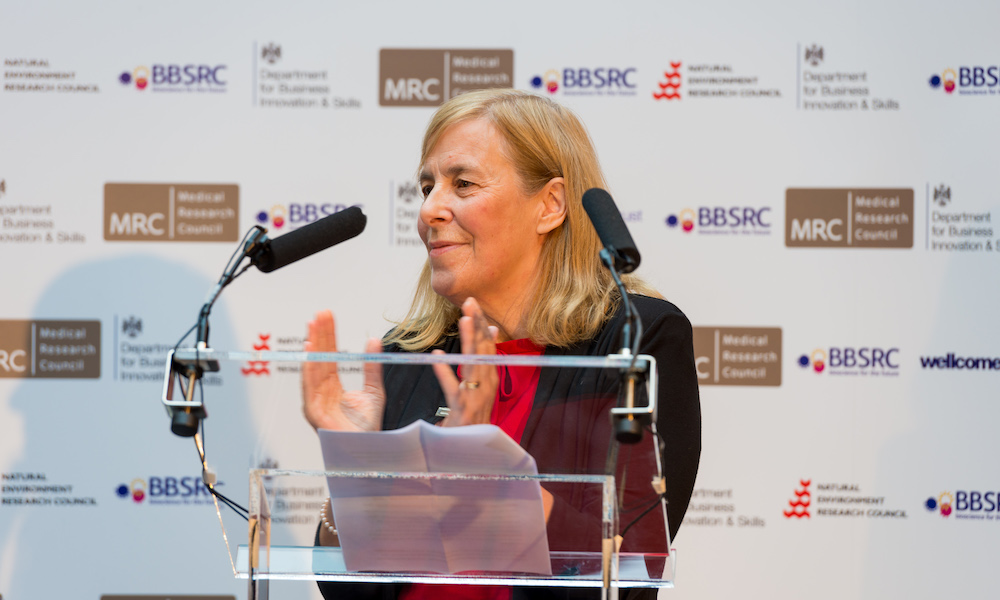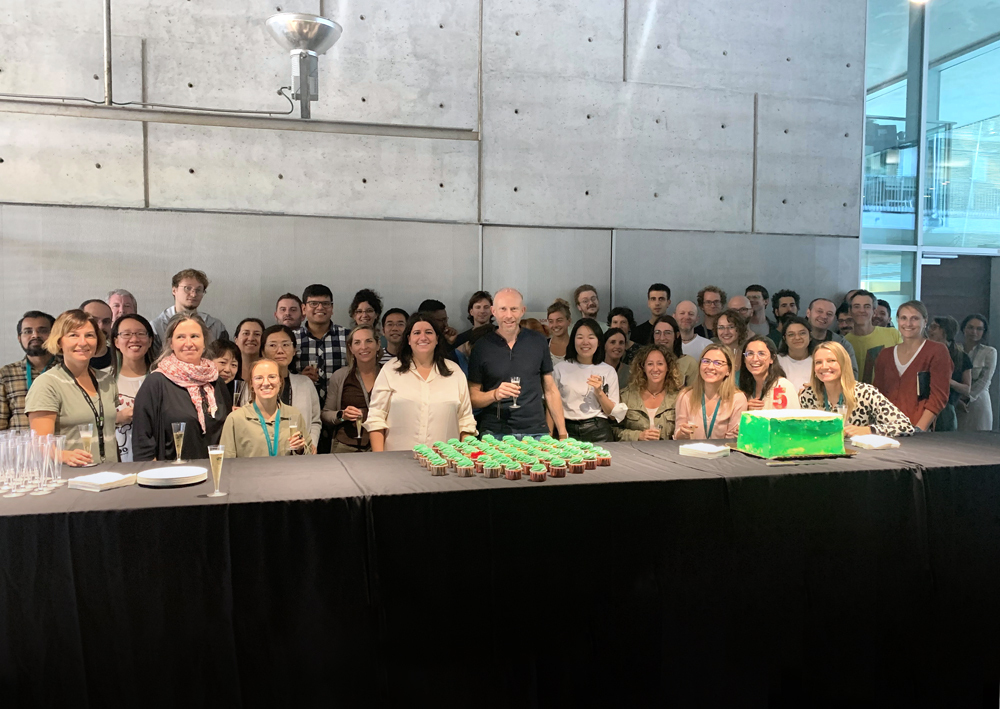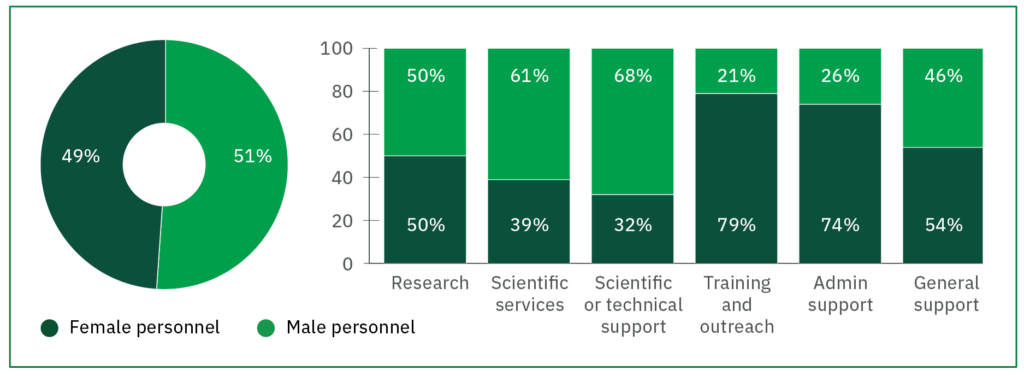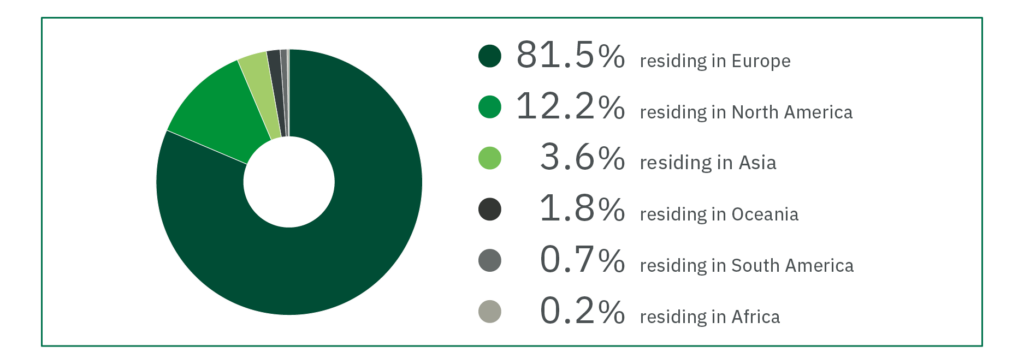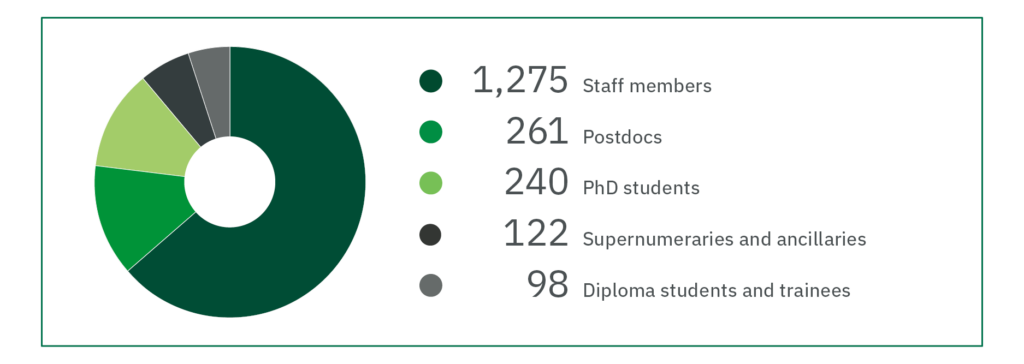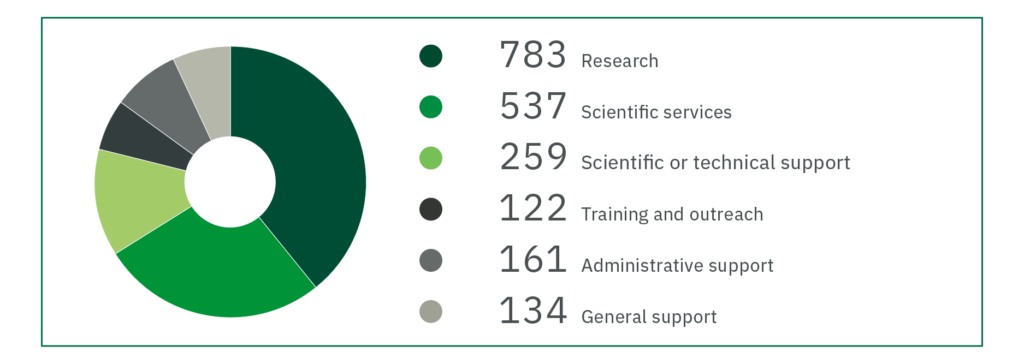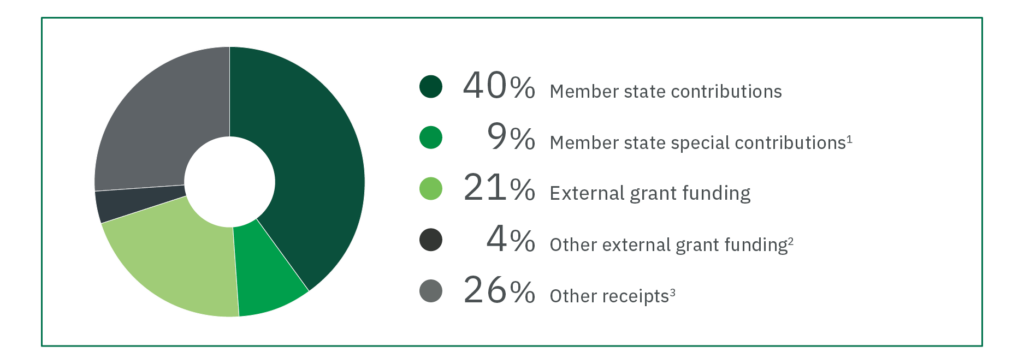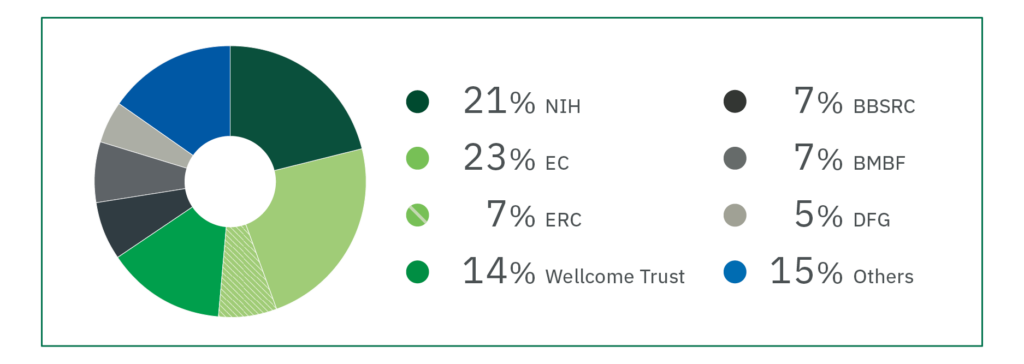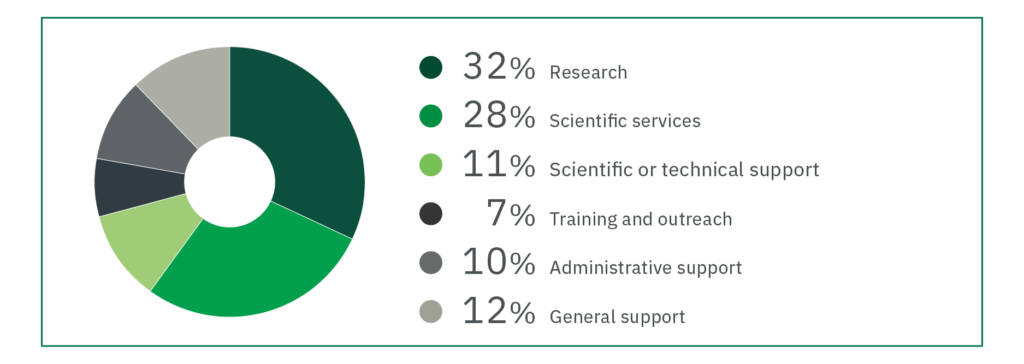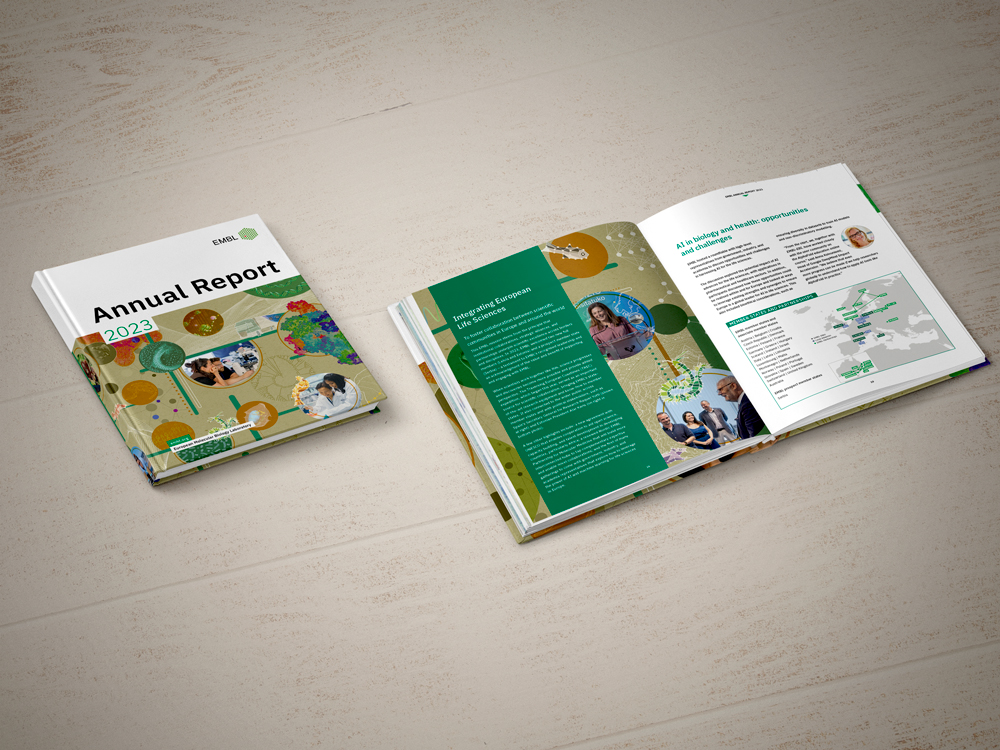
EMBL is a community of hard-working individuals – each essential to pursuing organisational missions.
As an intergovernmental organisation that delivers world-class life sciences research, training, and services, EMBL is committed to further modernising operations to ensure its operating model, systems and processes, and facilities support EMBL’s innovative, collaborative culture.
In 2023, EMBL’s diverse personnel spanned roles involving research, scientific services, technical or scientific support, training and outreach, administrative support, and other general support, such as communications.
The EMBL community goes far beyond those currently working and studying here. Our alumni, who go on to have wide-ranging impacts around the world, are the greatest evidence of the unwavering strength and influence of EMBL as a world-class scientific institute. EMBL supports and celebrates its alumni, updating them on EMBL opportunities, resources, and networks to benefit our special community and European life sciences.
EMBL is apt to lead in many areas, making it an exemplary place to work, study, or do world-class research.
This page is devoted to some of the highlights from 2023 related to people, processes, and places that make EMBL the successful organisation that it is.


